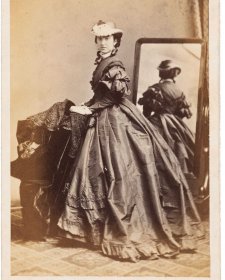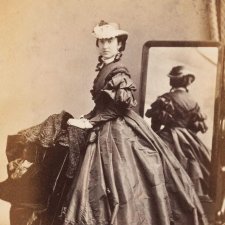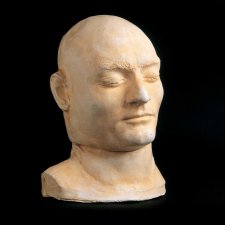Nathaniel Kinsman (1823–1898), preacher, came to Victoria in 1849 and set up in business in Fitzroy as a dealer in second-hand furniture. He became associated with the Anglican congregation in East Collingwood and preached there until 1862, when the church hierarchy decided to appoint an ordained minister in his place. He seceded to form the Victorian Free Church of England, which by 1866 had financed the construction of its own church building in Abbotsford. Kinsman’s opinions on doctrinal and social issues were often reported on in the press. In 1879, for instance, on the question of religious instruction in state schools, he stated his belief that ‘the whole Bible should be read [in schools], for it was the only antidote to the great sin of abomination which flourished around us’. And in welcoming temperance firebrand Matthew Burnett to Melbourne in 1878 Kinsman said he ‘had never seen a man that laid hold of people as [Burnett] did’ and hoped that many would show their support by taking the pledge. Though he wasn’t an ordained minister, as the recognised leader of a specific flock he was permitted to perform marriage ceremonies. This he did with such regularity and relish that he became known as ‘The Marrying Parson’, reportedly officiating in ‘several thousands of marriages’. It was said, however, that ‘with Mr Kinsman the celebration of marriage was purely a matter of business; the charges were regulated to suit the times and the pockets of the parties.’ In addition, such nuptials as Kinsman offered could be conducted at short notice and he was suspected of laxity in verifying whether or not his clients were actually permitted to marry. His name, as a result, was subsequently mentioned in various cases of bigamy, divorce and desertion. Only a week before his death in February 1898, it was reported that one Melbourne judge had ‘publicly objected to hear him styled ‘Reverend’.’
William Latimer (1851-1934) operated a studio in Fitzroy during the latter decades of the nineteenth century. During the 1880s his studio was located at 145 Smith Street, and subsequently he worked from rooms at 157 Smith Street. His advertisements make no mention of cartes de visite, although throughout the 1890s he advertised that his cabinet card portraits could be had for a shilling each, and his Paris Panels – larger, and slightly more up-market than cabinets – were two for three shillings or sixteen shillings sixpence per dozen.
Purchased 2013



On one level The Companion talks about the most famous and frontline Australians, but on another it tells us about ourselves.



Drawn from the NPG’s burgeoning collection of cartes de visite, Carte-o-mania! celebrates the wit, style and substance of the pocket-sized portraits that were taken and collected like crazy in post-goldrush Australia.



Death masks, post-mortem drawings and other spooky and disquieting portraits... Come and see how portraits of infamous Australians were used in the 19th century.